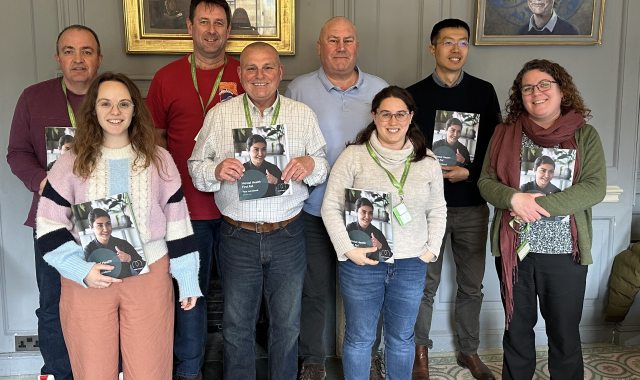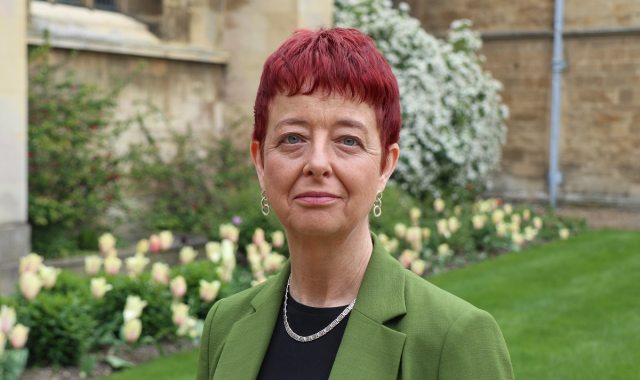Legacies of Enslavement
- 30 March 2021
- 3 minutes
Caian Sharon Mehari (History and Spanish 2019) appeared on the Legacies of Enslavement panel as part of the Cambridge Festival of Ideas this week.
Sharon is the President of the Cambridge African Caribbean Society and appeared alongside David Lammy MP, who was chair, Professor Sir Hilary Beckles, 8th Vice-Chancellor of The University of the West Indies, and Olivette Otele, a Professor of History of Slavery and Memory of Enslavement at the University of Bristol.
Sharon, who has recently joined the Legacies of Enslavement Advisory Group, first appears in the video at 36:45 (the video below will start at 36:45, but you can watch the whole event by clicking on the left of the red timeline on the video).
She said: “It has been a long, complex (relationship), where Black people didn’t just all of a sudden pop up in Cambridge. We have existed within that tapestry of academic innovation and growth from the likes of Alexander Crummell (Cambridge’s first Black graduate in 1848) all the way up until now.
“It’s huge to see that we have existed here for so long, but the fact is we are tackling this issue of reparative justice now and really trying to uproot this huge issue that we have yet to cover or conquer in this way before.”
Sharon discussed the issue of representation and equality being a collaborative challenge to overcome, and not the responsibility of Black people alone, but a collective issue for Cambridge, and wider society.
She added: “It’s not something that’s unique to Cambridge. There’s loads of different spheres – whether it’s in industry, whether it’s in other institutions – where Black people are forced to have this reckoning, to sit down in front of their institutions and say ‘this has happened’ and ‘we are still here’ and ‘what are we doing about it?’
“It’s not just about me or the African-Caribbean Society saying ‘we’re the student representation, we’re the ones whose ancestors have been hurt and therefore we need to spearhead this project’. It’s really important to address how much of a toll this takes on students, who are forced to be students, activists, accountability partners for huge institutions… how much of a toll that is on 18, 19 year olds who are just trying to study and enjoy it.
“I think it’s really important that we do have an idea of collectivity, coming together and listening to each other. It’s really great we’re having these conversations now, but one thing I’d really like to see is a sense of exposure.
“It’s just really important we get to that root word of repair, and repair starts with facing a truth, which Cambridge is starting to do. With the Legacies of Enslavement inquiry that is going on, it is clear that we are trying to confront what has happened.
“Through education, through financial, social, communal and physical means we can address that past, and expose it for what it was, but also collectively take that turn for the better.
“(But it is also) having a continuous conversation, so it doesn’t remain this internal, very short-lived conversation.”
For more information on the Legacies of Enslavement inquiry, visit: https://www.v-c.admin.cam.ac.uk/projects/legacies-of-enslavement and https://www.african.cam.ac.uk/LegaciesofEnslavementOverview


